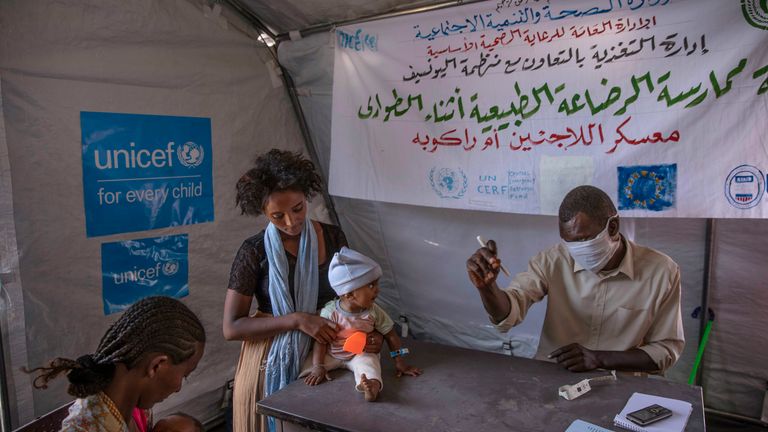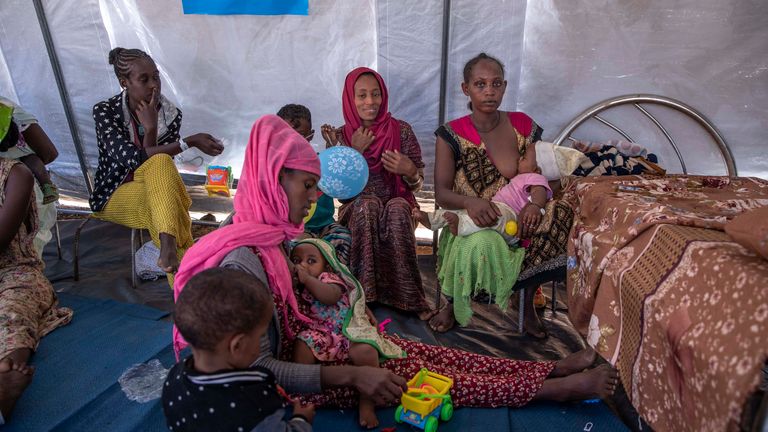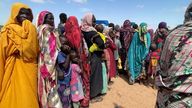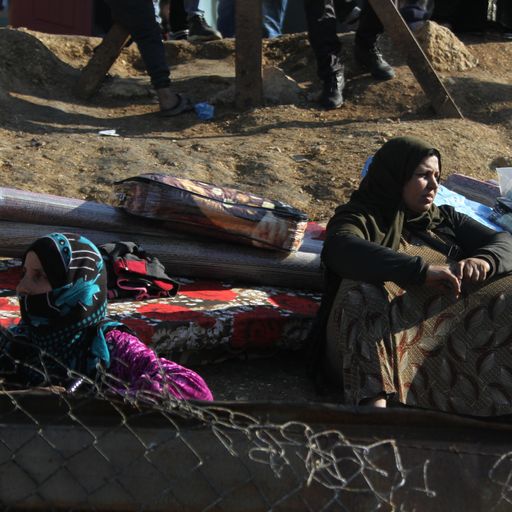UN agencies warn of 'serious consequences' for children as UK cuts funding
The UN children's agency says the funding enables it "to be present on the ground before, during and after emergencies".
Saturday 1 May 2021 21:24, UK
The UK plans to cut funding by 60% to the United Nations children's agency and to its global development programme in a move that will have "serious consequences" for vulnerable children and cost lives, the organisations have warned.
Joanna Rea, director of advocacy for UNICEF in the UK, said she understood the government had to make difficult choices on where to spend a reduced overseas aid budget.
"But we were hoping that these cuts would not fall on the shoulders of the world's children," she told Sky News.
Ulrika Modeer, assistant secretary general at the United Nations Development Programme (UNDP), said the funding reduction would be particularly harmful during a pandemic.
"It is like cutting the lifeline to people and countries that are in the midst of the worst crisis that they have experienced," she said in an interview.
The cuts are the latest to emerge as the Foreign, Commonwealth and Development Office axes more than £4bn from its annual overseas aid budget following a decision by the government to reduce an aid-spending target to 0.5% of national income from 0.7% because of the economic hit from COVID-19.
Many charities and UN agencies are being affected, with criticism mounting on the UK at a time when other world powers are increasing overseas assistance.
UNICEF said Britain informed the agency on Friday that its core funding will shrink to £16m in 2021 from £40m last year. The UK is one of UNICEF's largest donors.
For UNDP, Ms Modeer, said the funding cuts they know about so far equate to a reduction of £33m - falling to £22m this year from £55m previously.
Asked by Sky News presenter Kimberley Leonard if the loss of cash would cost lives, the senior UNDP official said: "Yes, international aid, overseas development assistance, is the lifeline for many people living in the poorest countries but also in the conflict-ridden countries, Afghanistan, Yemen, Iraq."
She said giving aid is not just an act of solidarity by richer countries to poorer nations - but it is a co-investment for everyone's future.
"What this year has taught us is that pandemics, climate change, but also migration, we have so many global challenges that we have to work together [on] - there is no way out of these crises unless we invest together," Ms Modeer said.
"Aid is not only something we should do out of solidarity - promises that rich countries have made to the poor countries - it is really a co-investment for the future, also for the children of the UK and other countries."
UNICEF said its core funding enabled the agency to respond swiftly to the most pressing "education, protection and health needs" of children impacted by the coronavirus pandemic last year.
"Any cuts to these funds will have serious consequences for children," it said in a statement.
"We are deeply concerned by this decision."
Ms Rea, from the agency, said the impact of the cuts is still being worked out.
"There is never a good time to cut support for children but doing so in the middle of a pandemic makes it much harder for children around the world," she said.
The agency expects additional cuts to other areas of funding, which cover specific themes such as access to water, sanitation and hygiene and education as well as bilateral projects involving individual countries.
UNICEF said in its statement it would continue to engage with the UK on a shared agenda for the world's children, adding that it hoped Britain would meet a commitment to return to spending 0.7% of national income on overseas aid "as soon as possible."






